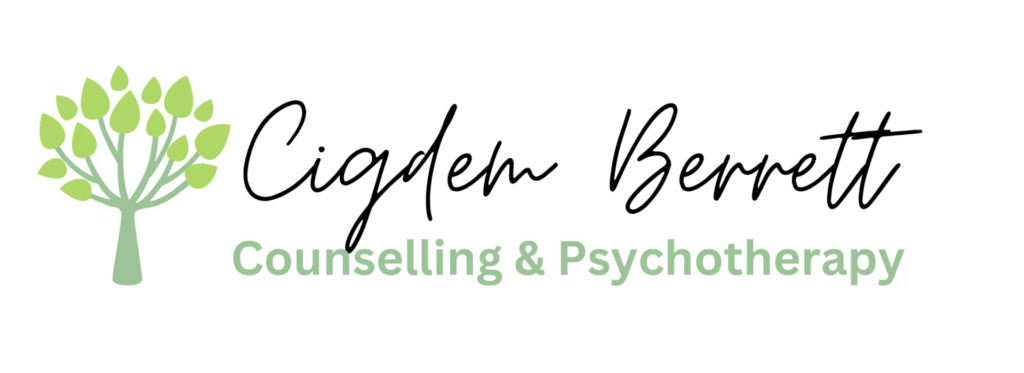Although counselling and psychotherapy are sometimes used interchangeably and they both fall under the umbrella of ‘talking therapies’, there are also some differences.
Counselling usually focuses on an issue or a stressor that is current. It could be that you have been bereaved or are going through a life transition such as divorce, becoming a parent, or children leaving home. In counselling, you may explore your options and the steps you can take to bring about change or alleviate your stress. You may also re-evaluate your assumptions and their impact on the present. Generally, counselling is more short-term than psychotherapy.
On the other hand, psychotherapy deals with deeper issues, long-term changes, and often involves exploring complex facets of personality and recognising patterns—whether relational, behavioural, or rooted in past experiences. For example, you might look at repeated difficulties in relationships, longstanding feelings of low self-worth, or persistent anxiety that doesn’t seem to have a clear cause. Psychotherapy is concerned with gaining a deeper understanding of the self and how past experiences—such as trauma, early attachment wounds, or family dynamics—continue to shape present-day emotions, behaviours, and relationships.
Difference Between Counselling and Psychotherapy Training
While a typical counselling course requires around 100 client hours, an accredited psychotherapy training will usually require a minimum of 500 clinical hours, along with extensive supervision, personal therapy, and academic components (i.e. MSc degree).
Psychotherapy training often involves learning to work with more complex psychological presentations and longer-term therapeutic processes. Both roles require professional training and a strong commitment to ethical practice, but the depth and length of training may influence the type of issues they feel equipped to work with and the way they approach the therapy process and the therapeutic relationship.
Professional Standards in the UK
In the UK, the titles “psychotherapist” and “counsellor” are not legally protected, meaning that anyone can use these terms regardless of their training or qualifications. This can make it difficult to know who is properly trained and working to professional standards. To help safeguard the public, several professional organisations promote ethical practice, set training standards, and ensure ongoing professional development for therapists. The two main professional bodies are the UK Council for Psychotherapy (UKCP) and the British Association for Counselling and Psychotherapy (BACP).

Leave a Reply